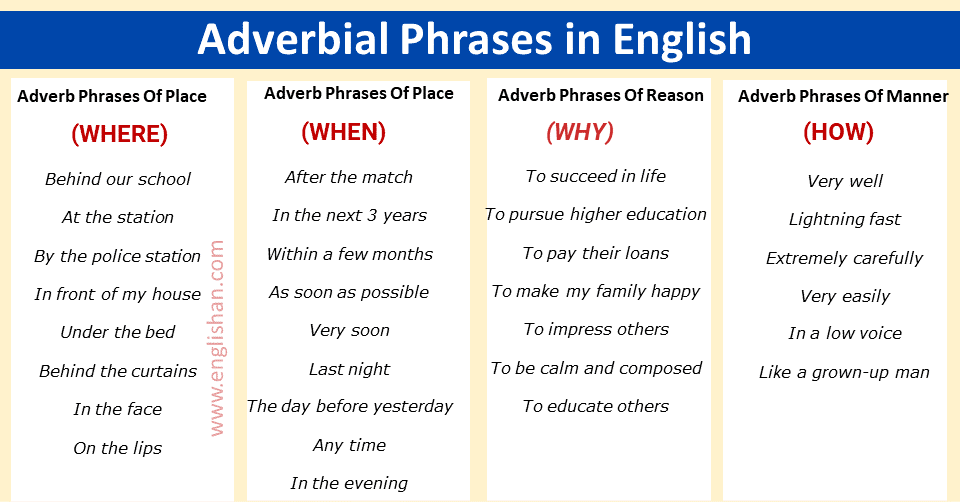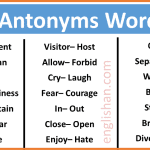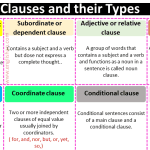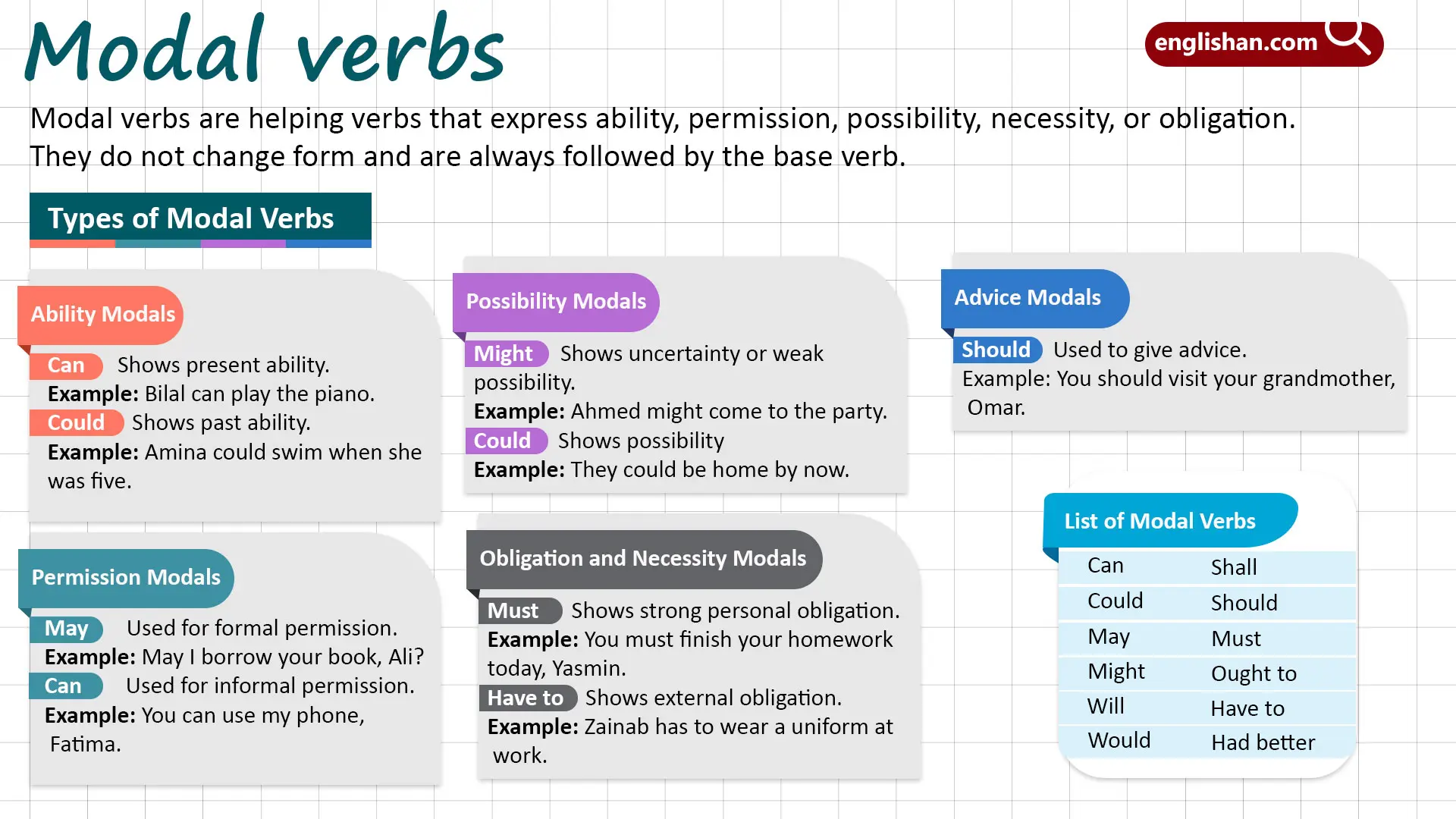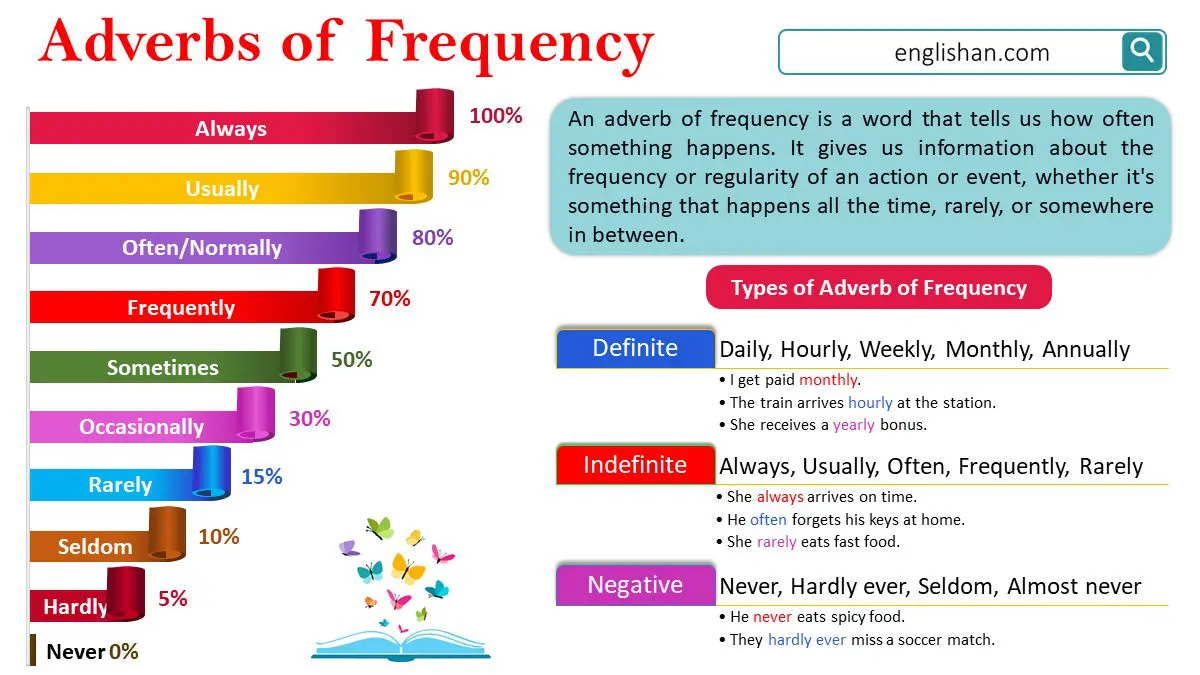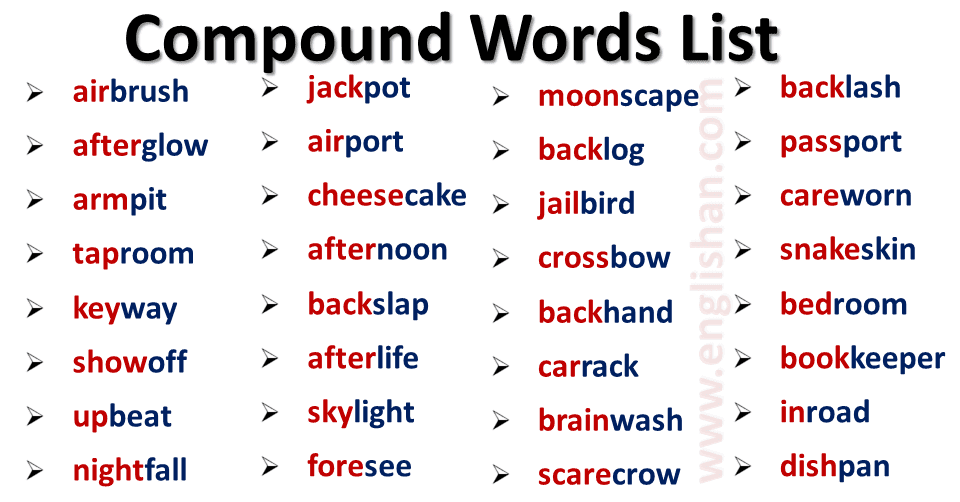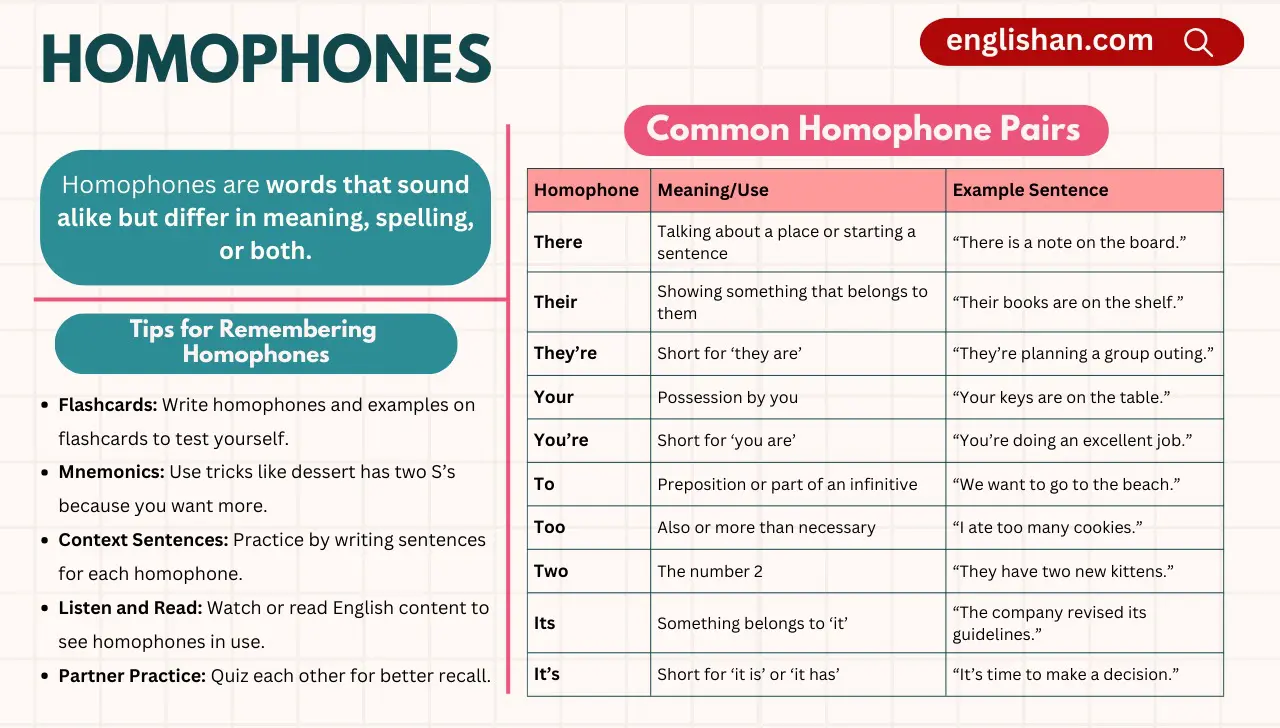Enhance your writing effortlessly with adverbial phrase in English. By adding these dynamic expressions to your sentences, you can create vivid descriptions and provide additional context with ease.
Phrases are a combination of two or more words that make sense but not complete sense. And it contains neither a subject nor a verb.
An adverb is a word that modifies or describes a verb or an adjective or another adverb. So,
what is an adverbial phrase in English?
An adverbial phrase is a group of words that functions as an adverb in a sentence to modify a verb, adjective, adverb, or main clause of a sentence.
The adverbial phrase gives more information about the verb or a sentence by answering questions like how, when, where, and why an action takes place.
Adverbial phrases are slightly different from adverbial clauses because there is no subject and verb in an adverbial phrase.
Adverbial phrases can be used at the beginning, middle, or end of a sentence. But when we use them at the beginning or in the middle of a sentence, it’s set off with commas.
Adverbial phrases can be intensified, prepositional phrases, infinitive phrases, or similes, etc.
For instance;
You are walking slowly. (adverb)
You are walking so slowly. (adverbial phrase)
I will call you when I arrive. (adverbial clause)
He works very slowly. (intensifier)
Don’t talk to me in that tone. (Prepositional phrase)
He came to Iran to find me. (infinitive phrase)
He fought like a brave man. (Simile)
Before we go, I would like to meet her. (Fronted adverbial phrase)
Types of adverbial phrases in English:-
There are different kinds of adverbial phrases, which are given below.
- Adverbial phrase of time
- Adverbial phrase of place
- Adverbial phrase of manner
- Adverbial phrase of reason
Adverbial phrase of time (when)
An adverbial phrase of time explains when something happens, how long or how often. The most commonly used adverbial phrases of time are: for a week, since morning, yesterday, last year, all day, for a while, every day, in a minute, tomorrow, any time, etc.
For example,
- He will arrive within a few minutes.
- She slept during the match.
- In a short time, the sun will set.
- I’ll meet you tomorrow.
- Let’s go for a walk after dinner.
- The national library of Pakistan closes at eight o’clock.
Adverbial phrase of place (where)
An adverbial phrase of place tells us where something takes place. The most commonly used adverbial phrases of place are: right here, at home, under the table, nearby, on the road, etc.
For example,
- The Earth rotates on its axis.
- She is waiting outside the mall.
- The cat is hiding under the table.
- I’ll meet you in the cafeteria.
- The Faisal mosque is located on the foothills.
- He was standing in the corner.
Adverbial phrase of manner (how)
An adverbial phrase of manner tells us how something happens. The most commonly used adverbial phrases of manner are: very carefully, quite easily, in a very bad way, very loudly, wisely, etc.
For example,
- She answered in a very rude manner.
- He does his work very carefully.
- Asim teaches English in an effective way.
- He was shouting very loudly.
- They are gaining victory quite easily.
- Time goes very quickly.
Adverbial phrase of reason (why)
An adverbial phrase of reason tells us about the reason behind an action, and why something takes place. The most commonly used adverbial phrases of reason are: to understand better, to receive thoroughly, because of, to do something, therefore, etc.
For example,
- He ran to cross the road.
- I’m happy to see you.
- She is ready to forgive him.
- He could not join us due to health issues.
- Abraham Lincoln fought to eradicate slavery.
- Everyone was excited about this event.
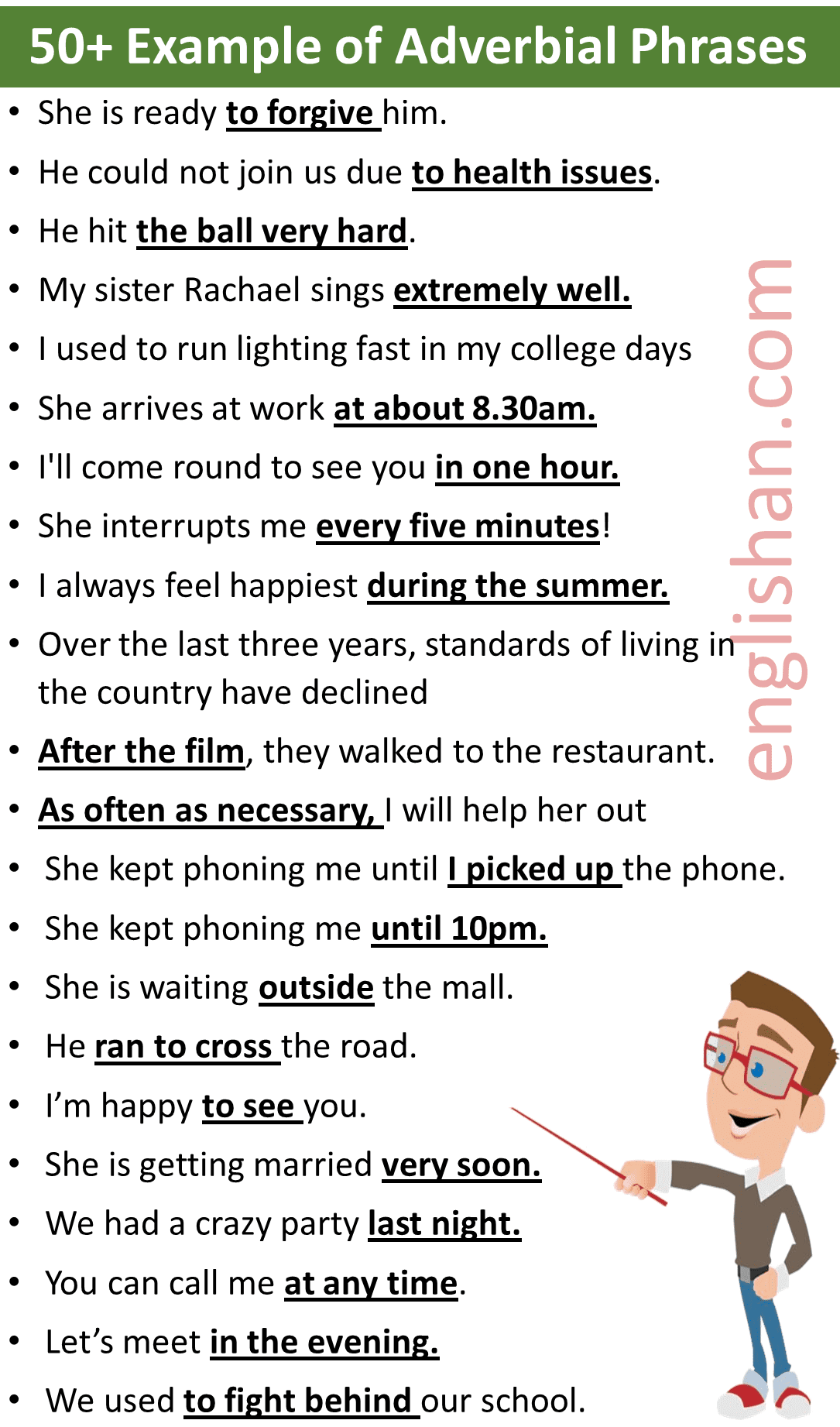
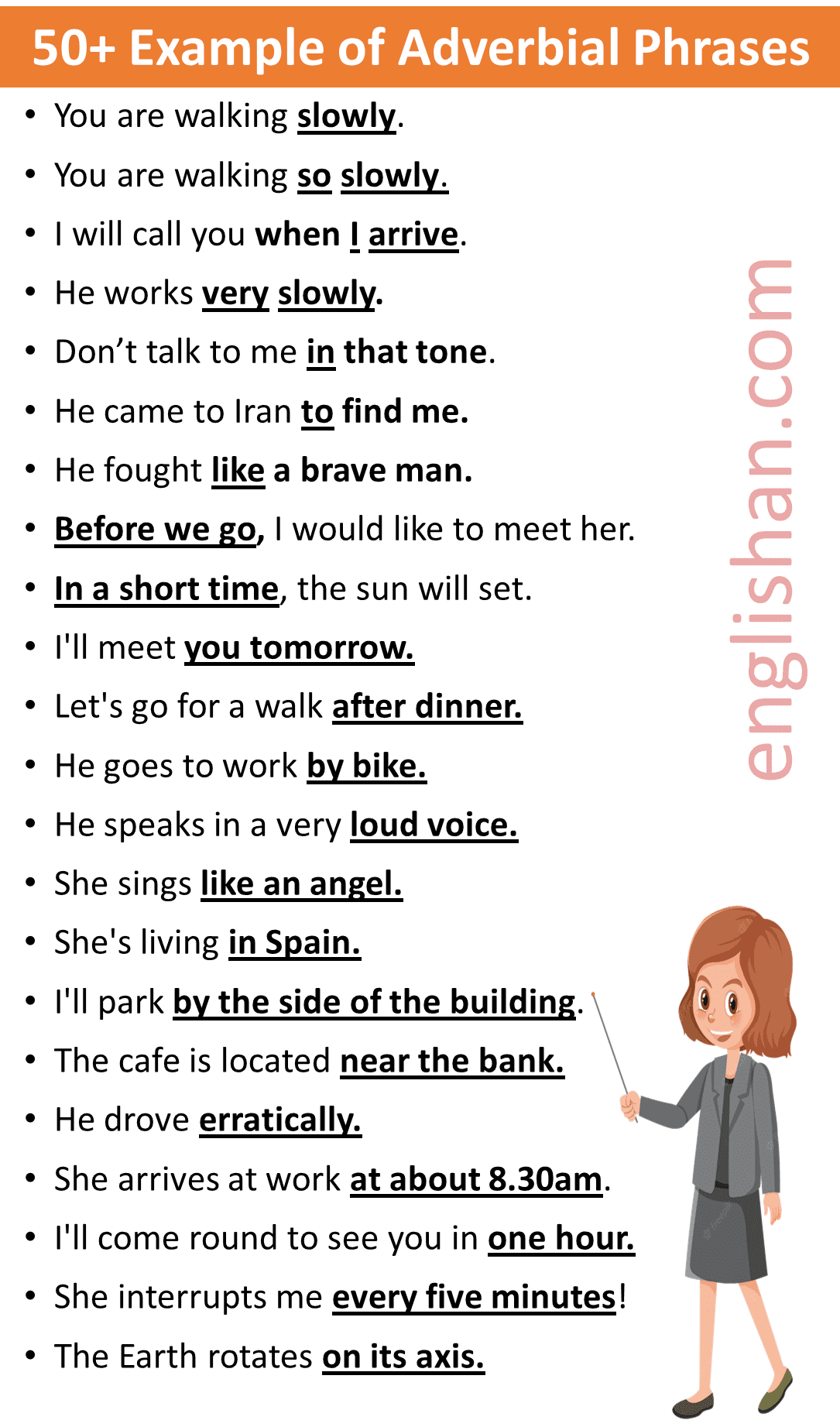
FAQs:
An adverbial phrase is a group of words that tells you more about how, when, where, or how much something happens.
Examples:
1. In the morning – She runs in the morning.
2. At the park – We met at the park.
3. Very quickly – He ran very quickly.
4. With excitement – She danced with excitement.
5. After lunch – I will call you after lunch.
Here are 10 examples of adverbial phrases:
1. In the morning
2. At the park
3. Very quickly
4. With excitement
5. On Monday
6. In a hurry
7. Afterschool
8. By the river
9. For a long time
10. At night
An adverbial phrase is a group of words that tells us how, when, where, or why something happens.
Examples:
1. In the morning – I wake up in the morning.
2. At the park – We play at the park.
3. Very fast – He runs very fast.
4. With a smile – She talks with a smile.
5. After school – We go home after school.
These phrases give extra details about the action.
Here are 5 examples of adverbial clauses:
1. We stayed inside because it was raining.
2. We go for a walk when the sun sets.
3. She finished her homework although she was tired.
4. We will build a snowman if it snows tomorrow.
5. He had time to relax since he arrived early.
These clauses tell us more about how, when, why, or under what condition something happens.
Read More
- Adverbs Types
- Adverbs List A To Z
- Adverbs Without LY
- Adjectival Phrases
- Appositive Phrase in English
